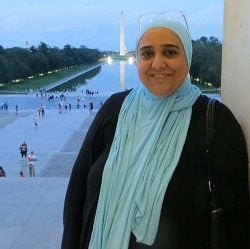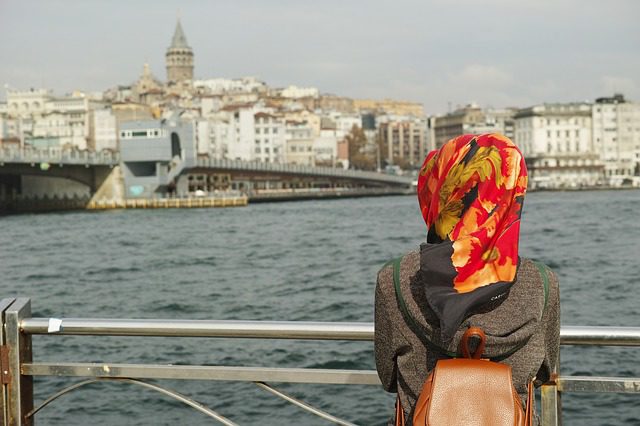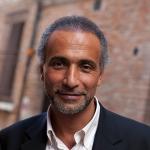I’m still getting over the jetlag from my recent trip to Jerusalem, and this post was born out of a conversation I had with Chris, the guy I met on a plane. Remember? This post isn’t going to be about Chris, but it’s his fault (smiles).
Chris will often send me news articles about crazy things that happen around the Muslim world. He doesn’t ask me to defend them, but he’ll sometimes ask where is the condemnation for this or that. Why aren’t Muslims doing anything about the radical elements? I don’t blame him, we do need to clean house but we’re not really there yet.
It’s impossible to know what percentage of Muslims support certain radical and terror groups, but I have a hard time believing that it’s a majority. For one, Muslims are much more likely to be victims of ISIS and other terror groups. Just recently, there was a suicide bombing in Baghdad where the death toll was 35 and rising.
But this isn’t what this article is about.
These articles often put me on the defensive because I feel I have to defend Islam and Muslims (and in a way defending my choice of being Muslim), and I shouldn’t feel that way. Neither is it my place to be the spokesperson for all the Muslims of the world. Just like I can’t speak for all Americans.
My views are my own, informed by my identities, life experience, reflection and learning from my mistakes. They have shaped who I am and how I see the world. The more I learn, the more I realize that I know nothing. I, at least, have half of knowledge because I have learned how to say I don’t know. And, the more information that I take in from the world (especially from outside of my silos) the more my views and opinions about the world around me shift and adapt to that new information.
It’s a humbling experience, and I’m always grateful for it.
I continue to reflect on these issues, and then had a really big epiphany. Recently I started to look at Islam through a mental health lens. I hope you stay with me here. It might feel like a stretch, but just go on this little journey with me.
See, when I first wore polarized lenses on my sunglasses, it totally changed the way I saw the world. Colors were brighter and more vivid. One time my sunglasses even made my friend’s skin look even more stunning than it did without glasses. I tried putting the lens in front of my camera, and it was incredible.
The point I’m trying to make is this: Sometimes we need a different kind lens to see the world differently. Not in the sense that we’re trying to correct our vision, but as a tool to enhance what we see, and in turn be able to see the world more vividly. For me, metaphors do just that — they help me understand my world better. Hopefully you will too.
Islam’s Post-Traumatic Stress Disorder
I’m not suggesting that Islam is mentally ill (please spare me the fatwas), but she’s definitely suffering from post-traumatic stress disorder. The last 200 years have been pretty traumatic for Islam as a whole, between the fall of the Ottoman Empire and the colonization of many Muslim majority countries, I’m not sure Islam has really recovered. I’m not sure if Islam has hit rock-bottom yet; maybe 9/11 was rock-bottom, or maybe it will take another horrific incident.
But, I think Islam (or Muslims) are starting to see that the trauma is really getting to them. PTSD makes us do bad things sometimes, and we have to take responsibility for our actions. But, responsibility doesn’t mean condemnation and being suspicious of the people around us. Accountability means getting to the root of the issue. And for Islam, it is her trauma.
I always told people who would approach me to try to convince their loved ones to seek out therapy that it would be a waste of time to try to convince them. They have to want to seek out treatment. Otherwise it won’t work.
Many people have tried to reform Islam, but she’s been very resistant to change. I don’t think she’s realized that she really needs help. Some might say that Islam never really recovered from the trauma of the death of the Prophet Muhammad (peace be upon him), or the trauma of the next dozens of years, when the caliphs were killed and then Muslims started killing each other.
Maybe the original trauma was when the Mongols almost wiped Islam out and her knowledge. Remember the rivers ran black with the ink from our books being dumped. But Islam’s resilience is kind of amazing: Within a generation, the Mongols became one of her best friends and supporters. But even that was traumatic. Imagine — the son of your perpetrator of severe abuse becomes your best friend. And, throughout history there continued to be trauma.
With that in mind, I think Islam really needs therapy, not a reformation. Meaning, if Islam was your kid, you shouldn’t send them to military school. That’s kind of what got us here in the first place (see ISIS).
Prior to all the trauma, Islam was sweet and pure. She was productive and contributed much to the world. She was good at science, and she brought coffee to the world. She was super popular, and everyone even wanted to talk like her and dress like her. She managed to do really well for a while. There were bad things that happened here and there, but the trauma of the last 200 years really did her in.
And, I think we are all starting to realize that she needs help. Is it time for an intervention? Don’t get me wrong, there have been some sincere attempts, like the Marrakesh Declaration and countless others. But is Islam ready for an intervention? What would that intervention look like? What would the end goal be? I think Islam needs this, but I’m not sure.
Something I used to tell my clients (I worked as a counselor in a private practice for six years) when they first started seeing me, was that it might get worse before it gets better. And, in my own healing journey, I’ve experienced the worst before I got better. Islam might be in the “worse” phase before it starts to get better.
Who knows? God does, and I am sure it will get better for Islam, and I’m hoping that I’m part of her getting better. She will get better when we get better, because I think ultimately, we’re also suffering from the same PTSD.
How Can We Help Islam?
How can I (and other Muslims, too) help Islam get better, or rather how can we help Islam recover from the PTSD? We can start by being the kind of people that we want Islam to be as well.
We’ve been coping in many ways — some of yearn for the good old days. They want to dress, talk and act like they did “back in the day.” They want to sit on the floor, wear thobes and keep miswak (branches) in their mouths all day. This is almost like cognitive behavioral therapy. They’re trying to fake it until they make it.
Some of us are coping by trying throw the baby out with the bathwater. If it doesn’t suit our sensibilities, we toss it out. Some of us have abandoned Islam altogether. And, some of us want an Islam that looks like a different religion. I know I love the idea of Jewish peoplehood, and I would love for us to adopt that. But that’s not fair to Islam. She needs the right to self-determination, and she needs to be who she is destined to be, which at the essence is good.
Most people are just lost and confused and just trying to get by. They’re trying live their lives, protect their children and make their community one that flourishes. We all need to get a point where we’re functioning and healthy, but there are some really sick people out there.
Some of us are coping in a very unhealthy way. We’re isolating ourselves, being violent tyrants and/or engaging in unethical behavior. We are abusive spouses; we are pedophiles; and we are downright criminal. But, that’s not because Islam did anything to us. We can blame her all we want, but everyone has to take responsibility for themselves, including Islam. And she has some ‘splaining to do.
Those people are harming themselves, and they’re harming Islam because they can’t take ownership over what they’ve done. They shift the blame elsewhere. As a social worker, I tell my clients all the time — Everything that’s said here stays here, unless you’re harming yourself or someone else. And at that time I will have to tell.
Remember how Islam was when she was at her best? Remember the good times? She was civically engaged, she was honest and ethical, and she always threw her trash in the garbage. She was good to her neighbors. She even cared to make sure that her neighbors seven doors away didn’t go to bed hungry. She excelled in all her studies, not just medicine and engineering. She produced beautiful art and music. She really was a force to be reckoned with. And, she had the most exquisite character. Islam is definitely female, because she essentially gave birth to the Renaissance, but the European men took all the credit.
An Ongoing Healing Journey
It’s never too late to start on the healing journey. We all have to help her and one another to heal. We have to show mercy, and we have to allow for us to regress. Regression is normal; to some it feels like rock-bottom, but it’s just a part of the process. Regression is not digression. Digression suggests that a person goes back and stays there. We can’t afford to let Islam digress. We all need to work together to make sure that we all get the help we need when we need it.

Ultimately, if people think that Islam is flawed as a religion, then I have to interpret that to mean that I am flawed. By that logic, maybe this whole article is a giant defense of Eman, as she Emansplains her way out of her trauma and struggles. I have to acknowledge that possibility.
My faith has had a lot to do with who I am today. I’d like to think that with every passing year, I am better than the previous year. If I’m not constantly improving and growing, then I need to reevaluate the previous year and make sure I make the changes necessary to be better at the end of the forthcoming year. My Islam also gets better.
If this system works as it should, then I’m always my best self. That doesn’t mean that I’m better than you, but it means that I’m better than I was. Like when I ask someone who has been sick, “Are you feeling better?” I’m not saying are you feeling better than me? I’m asking if they’re feeling better than their sicker self.
And, I am better than I was before. The Eman of 20 years ago isn’t someone I would want to be friends with today. I wouldn’t say that I was a bad person back then, but my views and understanding of the world would not jive with me today. It helped me cope with those years and as I adapted to new times and situations, naturally, my worldview adapted and changed as well.
Most of the time it was for the better, but even the bad was good for me in the end. I’m thankful for it all, and I’m looking forward to seeing who I will be in 20 years. Say a prayer that I get to see the world as a healthy centenarian.
Eman H. Aly works in digital communications and academic research. In her spare time she works in issues surrounding Muslim-Jewish relations in Chicago. Her digital home is at Eman.Land. Use the hashtag #emansplain in discussing this and her other columns. Her column, Emansplaining, appears in the third week of every month on Altmuslim.













